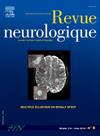无癫痫发作患者癫痫合并症的演变:无癫痫发作是否等同于无癫痫?
IF 2.3
4区 医学
Q2 CLINICAL NEUROLOGY
引用次数: 0
摘要
癫痫是一种常见的神经系统疾病,大多数患者通过抗癫痫药物(ASM)实现癫痫发作自由。然而,没有癫痫发作并不一定等同于没有癫痫相关的合并症。本综述探讨了无癫痫发作患者持续存在的精神、认知和社会挑战及其对生活质量(QoL)的影响。无癫痫发作患者的生活质量一般优于活动性癫痫患者,其评分接近一般人群。然而,详细的分析揭示了特定子领域的损伤,如情绪健康、能量水平和就业问题。无癫痫发作患者生活质量的最重要决定因素包括ASM副作用、精神症状和社会功能。值得注意的是,综合治疗与较差的生活质量有关。癫痫手术后,生活质量的改善是有据可查的,尤其是在手术后的头两年。然而,对于一些患者来说,实现癫痫发作自由并不一定导致显著的生活质量改善,这通常是由于持续的精神或认知障碍。精神合并症,特别是抑郁和焦虑,仍然是无癫痫发作患者生活质量的重要决定因素,有时比癫痫发作控制本身的影响更大。抑郁症在接受asm治疗的患者中更为普遍,尤其是那些接受综合治疗的患者。手术后,15-45%的患者精神疾病得到缓解,特别是那些不再发作的患者。没有癫痫发作的患者,尤其是那些有肌痉挛的患者,认知缺陷可能会持续存在。研究报告了语言流畅性、记忆力和处理速度的损伤,特别是在有磁共振成像病变或早期癫痫发作的患者中。在一些患者中,ASM戒断与语言流畅性、精神运动速度和注意力的改善有关,但与总体生活质量无关。癫痫手术后,认知结果各不相同,言语记忆下降是最令人担忧的影响,特别是在左侧切除后。然而,一些患者的认知能力有所改善,尤其是儿童的执行功能和智商。重要的是,只要癫痫发作得到控制,术后生活质量的改善通常与认知变化无关。癫痫发作自由对就业有积极影响,研究报告称,无癫痫发作的患者更有可能获得或保留全职工作。然而,障碍仍然存在,包括对癫痫的污名化和雇主的看法。驾驶能力对患者的独立性至关重要,高达80%的无癫痫患者重新获得了驾驶执照。虽然大多数无癫痫患者实现经济和居住独立,但社会适应可能具有挑战性。一些患者和家属在“正常负担”中挣扎,“正常负担”描述了适应没有癫痫的生活的困难。这可能会导致家庭关系紧张,在某些情况下还会导致离婚。实现癫痫发作自由是一个关键目标,但它并不是完全从癫痫相关负担中恢复的同义词。包括精神病学、认知和社会评估在内的综合方法对于优化无癫痫患者的福祉至关重要。本文章由计算机程序翻译,如有差异,请以英文原文为准。
Evolution of epilepsy comorbidities in seizure free patients: Is no seizure a synonym of no epilepsy?
Epilepsy is a prevalent neurological disorder, with most patients achieving seizure freedom through antiseizure medications (ASM). However, being seizure-free does not necessarily equate to being free from epilepsy-related comorbidities. This review explores the persistence of psychiatric, cognitive, and social challenges in seizure-free patients and their impact on quality of life (QoL). Seizure-free patients generally report a better QoL than those with active epilepsy, with scores approaching those of the general population. However, detailed analyses reveal impairments in specific subdomains, such as emotional well-being, energy levels, and employment concerns. The most significant determinants of QoL in seizure-free patients include ASM side effects, psychiatric symptoms, and social functioning. Notably, polytherapy is associated with a poorer QoL. After epilepsy surgery, improvements in QoL are well documented, especially in the first two years postoperatively. However, for some patients, achieving seizure freedom does not necessarily result in significant QoL improvements, often due to persistent psychiatric or cognitive impairments. Psychiatric comorbidities, particularly depression and anxiety, remain a significant determinant of QoL in seizure-free patients, sometimes exerting a greater influence than seizure control itself. Depression is significantly more prevalent in patients treated with ASMs, especially those on polytherapy. After surgery, 15–45% of patients achieve remission from psychiatric disorders, particularly those who become seizure-free. Cognitive deficits could persist in seizure-free patients, particularly in those on ASMs. Studies have reported impairments in verbal fluency, memory, and processing speed, especially in patients with magnetic resonance imaging lesions or early epilepsy onset. ASM withdrawal has been associated with improved verbal fluency, psychomotor speed, and attention in some patients, but not necessarily in overall QoL. After epilepsy surgery, cognitive outcomes vary, with verbal memory decline being the most concerning effect, particularly after left-sided resections. However, some patients experience cognitive improvements, particularly in executive functioning and IQ in children. Importantly, QoL improvements post-surgery are generally independent of cognitive changes, as long as seizure control is achieved. Seizure freedom positively impacts employment, with studies reporting that seizure-free patients are significantly more likely to obtain or retain full-time employment. However, barriers remain, including stigma and employer perceptions of epilepsy. Driving ability is crucial to patient independence, with up to 80% of seizure-free patients regaining their license. While most seizure-free patients achieve financial and residential independence, social adaptation can be challenging. Some patients and families struggle with the “burden of normality,” which describes difficulties adjusting to life without epilepsy. This can lead to strained family dynamics and, in some cases, divorce. Achieving seizure freedom is a critical goal, but it is not synonymous with complete recovery from epilepsy-related burdens. A comprehensive approach, including psychiatric, cognitive, and social assessments, is essential to optimize the well-being of seizure-free patients.
求助全文
通过发布文献求助,成功后即可免费获取论文全文。
去求助
来源期刊

Revue neurologique
医学-临床神经学
CiteScore
4.80
自引率
0.00%
发文量
598
审稿时长
55 days
期刊介绍:
The first issue of the Revue Neurologique, featuring an original article by Jean-Martin Charcot, was published on February 28th, 1893. Six years later, the French Society of Neurology (SFN) adopted this journal as its official publication in the year of its foundation, 1899.
The Revue Neurologique was published throughout the 20th century without interruption and is indexed in all international databases (including Current Contents, Pubmed, Scopus). Ten annual issues provide original peer-reviewed clinical and research articles, and review articles giving up-to-date insights in all areas of neurology. The Revue Neurologique also publishes guidelines and recommendations.
The Revue Neurologique publishes original articles, brief reports, general reviews, editorials, and letters to the editor as well as correspondence concerning articles previously published in the journal in the correspondence column.
 求助内容:
求助内容: 应助结果提醒方式:
应助结果提醒方式:


